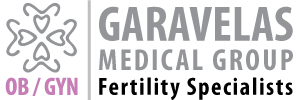It’s been over 40 years since the first baby was born through in vitro fertilisation (IVF) and more women are seeking IVF treatment today than ever before.According to a UNSW report released in 2018, almost 16,00 IVF babies were born in Australia and New Zealand in 2016/17 as a result of cycles undertaken in 2016. That’s the highest number of babies born through IVF in Australian history, with the increase in the number of live births reflecting both the rise in the number of cycles and improvement in success rates in recent years.
The Mediterranean diet is the eating plan that comes out on top as the best diet for women who are preparing for or going through IVF. “The Mediterranean diet is really rich in good fats, which are anti-inflammatory,” she says. “It can help to optimise the health of your eggs and reduce inflammation to assist in getting you pregnant. She explains the low-GI diet may assist in regulating your insulin levels to reduce the negative impact it may have on fertility and ovulation. The Mediterranean diet is also high in antioxidant-rich plant proteins, fruits and vegetables, which can improve egg health.

A 2018 study published in the Oxford journal, Human Reproduction, found that women who follow a Mediterranean diet in the six months before IVF have a significantly better chance of becoming pregnant and giving birth compared to women who did not. The research assessed the diet of 244 non-obese women aged 22-41 living in Greece as they went through their first round of IVF. The results showed that the women who ate vegetables, fruit, whole grains, legumes, fish and olive oil, and less red meat, had a 65-68 per cent greater chance of falling pregnant and a live delivery compared to those who had the lowest adherence to the Mediterranean-style diet. “When you are trying to conceive, you are preparing the health of the egg and sperm – the genetic material for your future baby. So there’s no more important time in life to eat a nutritious diet.” Of course, if there is a serious medical reason for IVF, diet alone will not make you fall pregnant.
- Nutrition tips to maximise fertility during IVFHere are McGrice’s Mediterranean diet-based tips for maximising your chances of IVF success at various stages of the process
- To boost egg health: Focus on getting omega-3 fatty acids, found in fish (low mercury is preferred), avocados and extra virgin olive oil.Eat plenty of fruits and vegetables as they contain valuable antioxidants that may benefit egg quality.
- To improve sperm health: Reduce exposure to toxins as this could negatively impact sperm quality – no smoking, drugs or alcohol.It’s not just women who need to maintain a healthy weight to maximise chances of IVF success and the future health of their baby. McGrice encourages men to optimise their weight as well. “It’s believed the impact of a man’s weight prior to conception may also have an impact on the future weight of the baby, so a man’s weight prior to conception is very important”.
